
Charles John Huffam Dickens was an English novelist and social critic who created some of the world's best-known fictional characters, and is regarded by many as the greatest novelist of the Victorian era. His works enjoyed unprecedented popularity during his lifetime and, by the 20th century, critics and scholars had recognised him as a literary genius. His novels and short stories are widely read today.
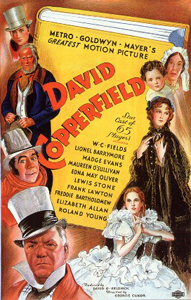
David Copperfield is a 1935 American film released by Metro-Goldwyn-Mayer based upon Charles Dickens' 1850 novel The Personal History, Adventures, Experience, & Observation of David Copperfield the Younger.
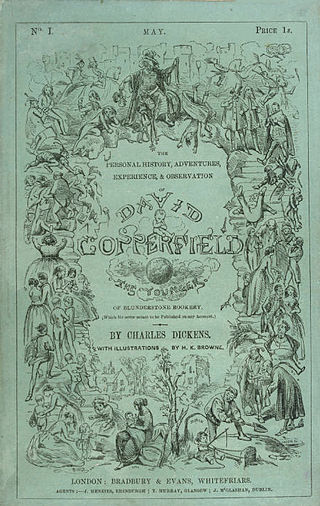
David Copperfield is a novel in the bildungsroman genre by Charles Dickens, narrated by the eponymous David Copperfield, detailing his adventures in his journey from infancy to maturity. It was published as a serial in 1849 and 1850 and then as a book in 1850.

Wilkins Micawber is a fictional character in Charles Dickens's 1850 novel David Copperfield. He is traditionally identified with the optimistic belief that "something will turn up."

Wives and Daughters, An Every-Day Story is a novel by English author Elizabeth Gaskell, first published in the Cornhill Magazine as a serial from August 1864 to January 1866. It was partly written whilst Gaskell was staying with the salon hostess Mary Elizabeth Mohl at her home on the Rue de Bac in Paris. When Mrs Gaskell died suddenly in 1865, it was not quite complete, and the last section was written by Frederick Greenwood.

The Mystery of Edwin Drood is the final novel by the English author Charles Dickens, originally published in 1870.
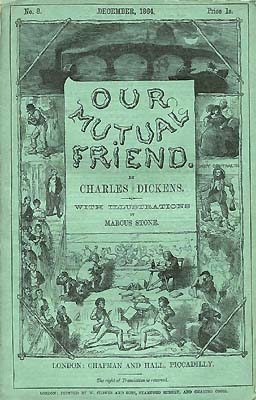
Our Mutual Friend, written in 1864–1865, is the last novel completed by Charles Dickens and is one of his most sophisticated works, combining savage satire with social analysis. It centres on, in the words of critic J. Hillis Miller, quoting the book's character Bella Wilfer, "money, money, money, and what money can make of life".
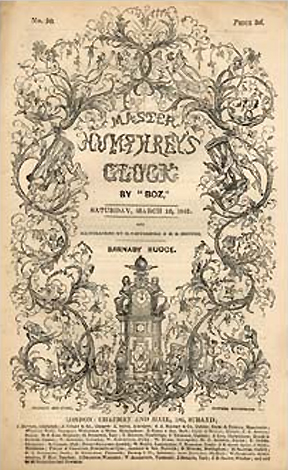
Barnaby Rudge: A Tale of the Riots of Eighty is a historical novel by British novelist Charles Dickens. Barnaby Rudge was one of two novels that Dickens published in his short-lived (1840–1841) weekly serial Master Humphrey's Clock. Barnaby Rudge is largely set during the Gordon Riots of 1780.
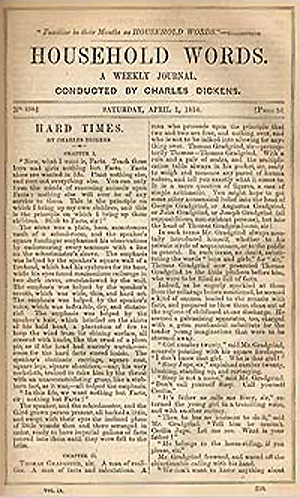
Hard Times: For These Times is the tenth novel by Charles Dickens, first published in 1854. The book surveys English society and satirises the social and economic conditions of the era.

North and South is a social novel published in 1854–55 by English author Elizabeth Gaskell. With Wives and Daughters (1865) and Cranford (1853), it is one of her best-known novels and was adapted for television three times. At first, Gaskell wanted the novel to be titled after the heroine, Margaret Hale, but Charles Dickens, the editor of Household Words, the magazine in which the novel was serialised, insisted on North and South.
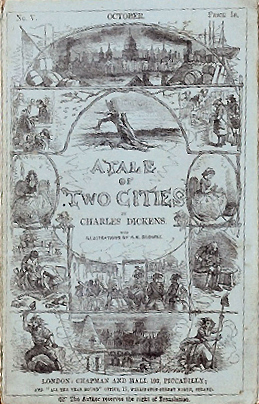
A Tale of Two Cities is a historical novel published in 1859 by Charles Dickens, set in London and Paris before and during the French Revolution. The novel tells the story of the French Doctor Manette, his 18-year-long imprisonment in the Bastille in Paris, and his release to live in London with his daughter Lucie whom he had never met. The story is set against the conditions that led up to the French Revolution and the Reign of Terror.

Mr Brownlow is a character from the 1838 novel Oliver Twist by Charles Dickens. Brownlow is a bookish and kindly middle-aged bachelor who helps Oliver escape the clutches of Fagin. He later adopts Oliver Twist by the end of the novel.
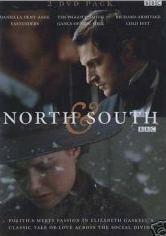
North & South is a British television historical drama programme, produced by the BBC and originally broadcast in four episodes on BBC One in November and December 2004. It follows the story of Margaret Hale, a young woman from southern England who has to move to the North after her father decides to leave the clergy. The family struggles to adjust itself to the industrial town's customs, especially after meeting the Thorntons, a proud family of cotton mill owners who at first seem to despise their social inferiors. The story explores the issues of class and gender, as Margaret's sympathy for the town mill workers clashes with her growing attraction to John Thornton.

David Copperfield is a two-part BBC television drama adaptation of Charles Dickens's 1850 novel of the same name, written by Adrian Hodges. The first part was shown on Christmas Day 1999 and the second part the following day.
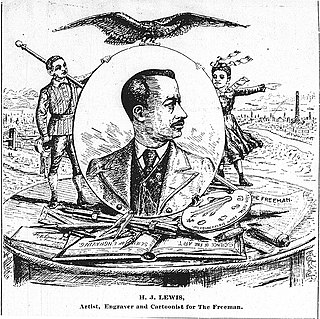
Henry Jackson Lewis was the first African-American political cartoonist.
The bibliography of Charles Dickens (1812–1870) includes more than a dozen major novels, many short stories, several plays, several non-fiction books, and individual essays and articles. Dickens's novels were serialized initially in weekly or monthly magazines, then reprinted in standard book formats.
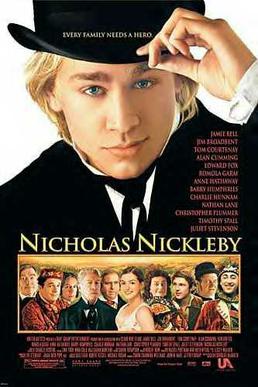
Nicholas Nickleby is a 2002 British-American period comedy-drama film written and directed by Douglas McGrath. The screenplay is based on The Life and Adventures of Nicholas Nickleby by Charles Dickens, which originally was published in serial form between March 1838 and September 1839. Charlie Hunnam stars in the title role alongside Nathan Lane, Jim Broadbent, Christopher Plummer, Jamie Bell, Anne Hathaway, Romola Garai, Alan Cumming, and Timothy Spall.

The Night Gardener is a 2006 crime novel by George Pelecanos. It is set in Washington, DC and focuses on homicide detective Gus Ramone, and ex-cops Dan "Doc" Holiday and TC Cook as they investigate the possible return of a serial killer.

Edward "Monks" Leeford is a character in the 1838 novel Oliver Twist by Charles Dickens. He is actually the criminally-inclined half-brother of Oliver Twist, but he hides his identity. Monks' parents separated when he was a child, and his father had a relationship with a young woman, Agnes Fleming. This resulted in Agnes' pregnancy. She died in childbirth after giving birth to the baby that would be named Oliver Twist.

CSI: Crime City was the eleventh video game adaptation of the CSI: Crime Scene Investigation television series, developed for Facebook by American studio area/code and published by Ubisoft. It was the third CSI game released during 2010, along with CSI: Fatal Conspiracy and CSI: Unsolved. When Case Set 12 was released, it brought the game up to 61 cases. The game has been shut down as of March 13, 2015.




















